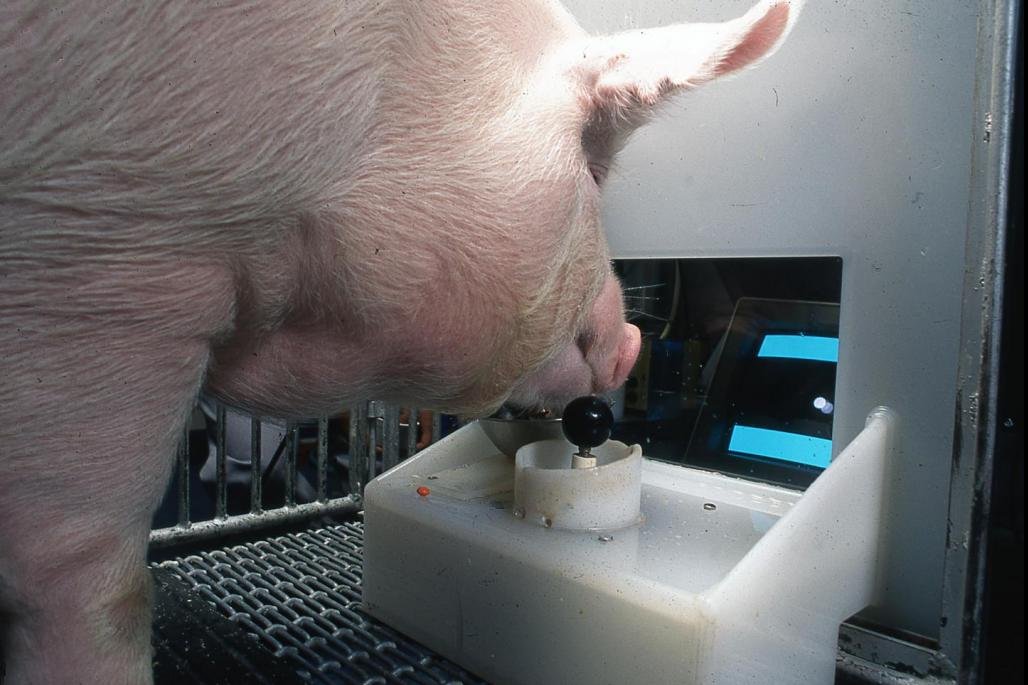 UPI
UPI By Brooks Hays
Feb. 11 (UPI) — Pigs are known to be smart — but the ability to play video games requires more than just brain power, and researchers were surprised they could handle the challenge.
When researchers at Purdue University trained four pigs to play a simple joystick video game, they were surprised how quickly the animals took to the game, despite their limited dexterity.
According to the new study, published Thursday in the journal Frontiers in Psychology, the four pigs showed remarkable behavioral and mental flexibility.
The study involved two Yorkshire pigs, Hamlet and Omelet, and two Panepinto micro pigs, Ebony and Ivory.
All four were trained to manipulate the joystick with their snout. The game, typically used to test the cognitive abilities of non-human primates, required the pigs to use the joystick to move a cursor toward one of four target walls.
The pigs demonstrated conceptual understanding of the game, succeeding at a clip beyond pure luck.
“It is no small feat for an animal to grasp the concept that the behavior they are performing is having an effect elsewhere,” lead study author Candace Croney said in a press release.
Research has previously shown pigs to be intelligent and emotionally sophisticated animals, capable of adapting to new rules during game playing and following the same kinds of basic obedience commands given to dogs.
Though the animals in the latest study were trained using food treats, researchers found the pigs also respond to verbal cues without food — social contact alone was enough encouragement.
“This sort of study is important because, as with any sentient beings, how we interact with pigs and what we do to them impacts and matters to them,” Croney said.
“We therefore have an ethical obligation to understand how pigs acquire information, and what they are capable of learning and remembering, because it ultimately has implications for how they perceive their interactions with us and their environments,” Croney said.
Though the four pigs were unable to match the performance of primates, scientists suggest the performance gap is most likely the result of differences in dexterity and vision, not cognitive abilities.
In future studies, researchers hope to determine whether humans could use computer interface featuring symbols to communicate with the pigs.
“Informing management practices and improving pig welfare was and still is a major goal, but really, that is secondary to better appreciating the uniqueness of pigs outside of any benefit we can derive from them,” Croney said.





